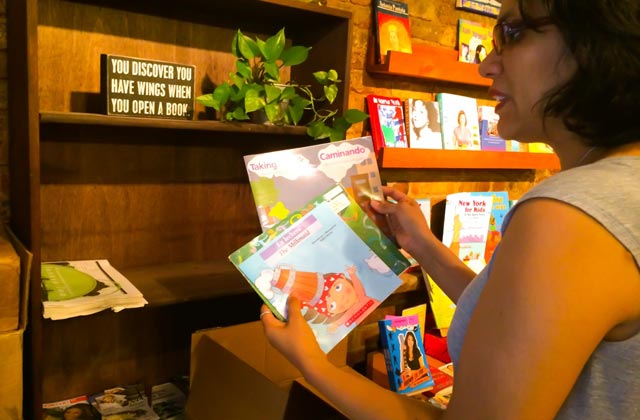By the time 2014 comes to an end, some 90,000 unaccompanied child migrants–mostly from El Salvador, Guatemala and Honduras–are expected to make their way into the United States. If they’re detained at the border, they’ll be placed in temporary detention facilities. Then those who aren’t deported will be scattered into detention facilities or into homes with family members or foster parents.
A lot of attention around these children has largely focused on federal immigration and refugee policy, but there have also been efforts to provide them with basic necessities, many of which are rooted near the U.S.-Mexico border. For instance, groups such as Catholic Charities of the Rio Grande Valley, based in Texas, have been collecting direct donations and gifts in kind, such as shoes, clothing and blankets. Other faith groups such as the Southern Baptist Convention are also focusing relief efforts on what they call the Border Crisis. And, for those people who have the time and other resources to make a more dedicated commitment, the Lutheran Immigration and Refugee Service organization provides people with information on how to foster migrant children.
But beyond basic needs such as shelter and clothing, some groups are contending with what else children might need–and not just near the U.S.-Mexico border.
La Casa Azul Bookstore, which opened in East Harlem in 2012, is a community hub, hosting readings, film nights and art exhibits. In June, after hearing news of the child migrant crisis, owner Aurora Anaya-Cerda started thinking about how La Casa Azul could help, especially in a city so far from the border. She connected with Isabel Martínez, a professor in the Latino studies department at John Jay College of Criminal Justice who has studied child migrants living in New York City since 2006.The two longtime friends decided to hold a book drive to provide migrant children with age- and language-appropriate books. It would be a joint project between LaCasa Azul and the Unaccompanied Latin American Minor Project (ULAMP) at John Jay.
Martínez combined her connection to migrant child migrants and advocates with Anaya-Cerda’s previous experience organizing a book drive for a local school to make this project happen. It was a massive undertaking for an independent bookstore owner and a busy professor and researcher, but the two women are humble about it. "That’s what you do. It’s really part of what you do," explains Anaya-Cerda, about why she felt compelled to take action. "Our resources, collectively, is what made it happen."
The two women planned out the drive in three phases. The first phase was soliciting books, from July to August. The store provided a suggested book list online making it clear that they wanted new or barely used books on specific topics. A young adult book on immigration might seem suitable, for example, but both Martínez and Anaya-Cerda had heard that some children wanted books that allowed them to escape from their reality as migrants.
The very first books to arrive came from authors Sandra Cisneros, Rodolfo Anaya and Julia Alvarez–their publicist had sent them the call and the writers responded. The first phase also included related programming. The bookstore hosted the screening of two films, "Which Way Home" and "Sin Nombre." And it held two card-making days so that children who receive the books also get a personal, handwritten note. This allowed people who couldn’t afford to donate a book, including local college students, to donate their time. By the end of phase one, La Casa Azul had received about 600 books.
Martínez and Anaya-Cerda began phase two in early August. They sorted books by age and reading level; solicited titles that were requested but not donated; and researched how to ship the books to migrant children being held in a Dobbs Ferry, New York, detention center. To raise money for shipping, Martínez and Anaya-Cerda created an online fundraising campaign with the goal of raising $2,500. They raised $2,930 in 17 days, and the number of books donated to the project more than doubled, to 1,531. Each one of those books now includes a project nameplate to remind children that the books are theirs–not books to leave behind in a courtroom or a detention center. A book to really call their own.
The La Casa Azul-ULAMP book drive is now in phase three, which includes distributing the books to the children. This requires a commitment until at least December. That commitment is clearly a personal one for Martínez. "My grandmother was a 15-year-old pregnant teenager when she crossed in 1918, and if she hadn’t crossed, I wouldn’t be here," she says. "This is part of the story of the United States."
